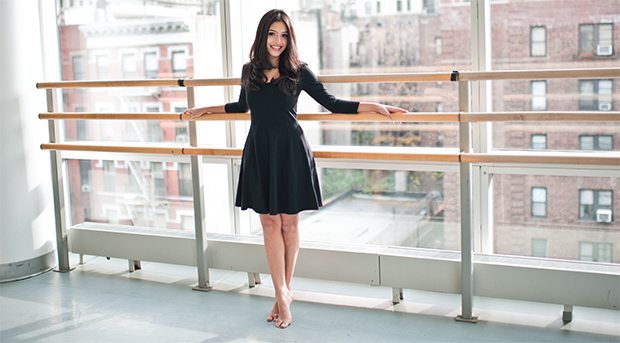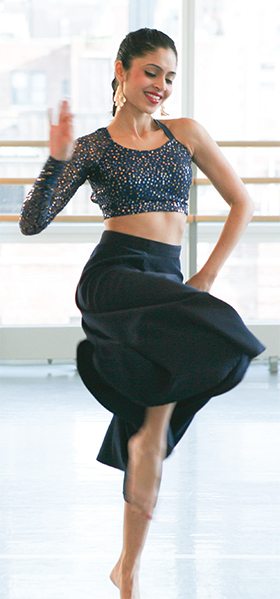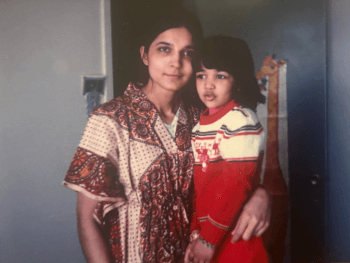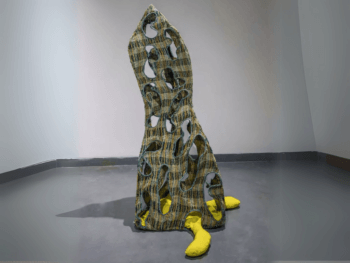
Hot, new start-up ClassPass gives consumers flexibility and choice when it comes to fitness classes.
We’ve all been there. You want to get fit but the gym isn’t working for you. Group fitness will make getting into shape fun; Right? Wait. The gym membership you paid an unreasonable amount for doesn’t offer yoga classes — or really anything that interests you — and the boutique studio you’ve been eyeing is even pricier. Guess it’s Netflix on the couch until 3 a.m. again. Excuses, excuses. Well, until now.
You can thank Payal Kadakia for helping eliminate that excuse and forcing you to peel your butt off the couch and do Pilates instead. The passionate 31-year-old entrepreneur is the CEO of ClassPass, a service that makes finding and participating in fitness classes easy and accessible.
ClassPass began as Classtivity, a database that could be used to search for fitness classes in New York City. Kadakia was struck with inspiration for the start-up in 2010 when she, a consummate dancer and always on the move, was looking for a class to fill her time and was frustrated with how complicated the process was. Over time, the service changed its name and evolved to what it is now; a streamlined search and registration tool for the likes of zumba, yoga and barre classes. Gyms and independent boutique studios partner with ClassPass so that they can fill their classes to capacity, and users get the chance to try new things and work up a sweat for less money and without hassle. A one month subscription covers the cost of 10 classes with affiliated gyms.
The company, which initially took off through participating with TechStars NYC, a program that preps and funds promising start-ups, recently announced a $2 million round of angel investors. This news comes while the subscription service has began taking off in other cities like San Francisco and Boston.

It’s no surprise that Kadakia’s vision has come to life. Having practiced classical Indian and folk dance since the age of three, she has a dancer’s discipline and joie de vivre. After graduating from MIT, she began working at Warner Music Group. Never letting corporate life quell her creativity, it was during this time that she founded The Sa Dance Company, a troupe that presents Indian dance and showcases its artistry, inviting audiences to watch and appreciate much in the same way they’d attend ballet performances. It gave Kadakia the chance to preserve her heritage but also gain the leadership skills she’d carry on to her next entrepreneurial adventure.
Growing up in Randolph, New Jersey, Kadakia says she was teased for being Indian. “I sort of had a dual identity, where I would go to school and was a cheerleader and I wouldn’t really associate with my Indian self, and then in the evenings I would go to garba and dance,” she says. It was through learning Bharatanatyam and Bollywood moves that she was eventually able to be herself and this is the same ethos she applies to her business ventures.

In 2009, The Sa Dance Company had just performed in New York, and the next day was featured on the cover of the arts section of The New York Times. “It was this phenomenal moment because I was like, ‘We don’t even have a website,’” she laughs. “I think at that moment I was like, I know that if I want to do something, I do it well. It was nice to feel that appreciation.” She threw away the GMAT books she’d been using to apply for her MBA and in 2011, Kadakia quit her job at Warner Music Group with no plan B. “This is what a lot of entrepreneurs struggle with,” Kadakia says. “You have to focus in order to make something happen. A lot of people try to do it on the side and it works but it doesn’t always work. For me, I know I have to put all my energy into something to create it,” she says recalling a time when she stayed up until 5 a.m. feverishly working on a business plan for the new path she was embarking on.
“When I first started out, you’re put into very intimidating situations,” she says. “I remember I dressed in ways I wasn’t comfortable.” Business suits and high heels were supposed to give her power, but instead made her feel uncomfortable. The 4-foot-11 CEO came to realize that she didn’t need the accoutrements of a ruthless businesswoman to succeed. The diminutive powerhouse, nicknamed the Tiny Dancer, now attends investment meetings in her dance leggings and workout gear.
There is this existing pressure, Kadakia admits, for women in business industries where they feel the need to portray themselves as a “strong female.” She says she found the best way to deal with this expectation is to make it a non-issue. “I just realized the number one thing I have to do is be myself,” she says, “It has nothing to do with being male or female.”
ClassPass, founded by Kadakia and Mary Biggins, has expanded across the United States. What was a four-person operation six months ago now employs 25 people. Kadakia spends most of her time these days travelling to find new additions to the team. “This is what I’ve been dreaming about,” she says. “I started the company and had the idea for it four years ago. Yeah, it’s a lot busier now and it’s a lot more problems to solve . . . [but] I’ve learned to trust other people, to be like, ‘I know you’ve got this, you’re going to make this happen too.’” If all goes smoothly, she hopes ClassPass will be international by next year, hitting big cities like London, England and Toronto, Canada.
Despite how far she’s come, Kadakia knows it’s not over yet. “You don’t have the option to have an off day,” she says. “Being an entrepreneur, you have to wake up every day and change the world.”
BY PRAJAKTA DHOPADE
PHOTOGRAPHY COURTESY OF CLASSPASS.COM
PUBLISHED IN THE FASHION & STYLE ISSUE, FALL 2014

















































































































